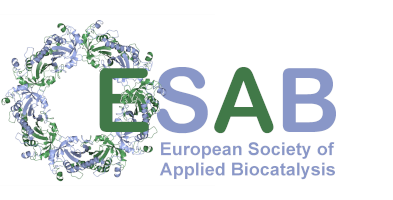Enhanced enzymatic depolymerization of polylactic acid (PLA) through plasma pretreatment and subsequent conversion to biopolymer
Abstract
Jelena Milovanovic / INSTITUTE OF MOLECULAR GENETICS AND GENETIC ENGINEERING University of Belgrade, Belgrade, Serbia
Marija Nenadovic / INSTITUTE OF MOLECULAR GENETICS AND GENETIC ENGINEERING University of Belgrade, Belgrade, Serbia
Brana Pantelic / INSTITUTE OF MOLECULAR GENETICS AND GENETIC ENGINEERING University of Belgrade, Belgrade, Serbia
Marijana Ponjavic / INSTITUTE OF MOLECULAR GENETICS AND GENETIC ENGINEERING University of Belgrade, Belgrade, Serbia
Georgia Sourkouni / Clausthal Centre for Materials Technology (CZM), Clausthal University of Technology, Clausthal-Zellerfeld, Germany
Charalampia Kalogirou / Clausthal Centre for Materials Technology (CZM), Clausthal University of Technology, Clausthal-Zellerfeld, Germany
Christos Argirusis / National Technical University of Athens (NTUA), Athens, Greece
Jasmina Nikodinovic-Runic / INSTITUTE OF MOLECULAR GENETICS AND GENETIC ENGINEERING University of Belgrade, Athens, Greece
Topic: Biocatalysis for the Synthesis of Biomaterials
Polylactic acid (PLA) serves as a bio-based alternative to fossil-based single-use plastics, biodegrading at high temperatures (58°C) and humidity during industrial composting. Despite enzymes' ability to catalyze reactions at near-ambient temperatures, polymer rigidity can impede efficient depolymerization. To address these challenges, we conducted a study of enzymatic PLA degradation at 42°C combined with green plasma pretreatment to help disrupt the crystalline regions within the polymer. Here we report the effect of length of plasma pretreatment on the rate of PLA degradation by enzyme mix containing commercial enzymes with reported PLA degrading activity. Results indicate that a 5-minute plasma pretreatment significantly enhances enzymatic degradation, with a 16% weight loss achieved in 4 weeks—a two-fold increase compared to untreated PLA. Furthermore, we report the valorization of PLA into bacterial nanocellulose after enzymatic hydrolysis of the samples.
